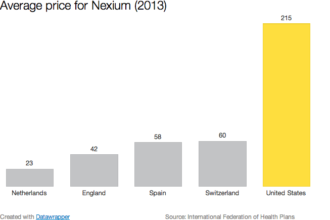How much do you really know about your heart’s health? It’s easy to be fooled by misconceptions. After all, heart disease only happens to your elderly neighbor or to your fried food-loving uncle, right? Or do you know the real truth – that heart disease can affect people of any age, even those who eat right?
How much do you really know about your heart’s health? It’s easy to be fooled by misconceptions. After all, heart disease only happens to your elderly neighbor or to your fried food-loving uncle, right? Or do you know the real truth – that heart disease can affect people of any age, even those who eat right?
Relying on false assumptions can be dangerous to your heart. Cardiovascular disease kills more Americans each year than any other disease. But you can boost your heart smarts by separating fact from fiction. Let’s set the record straight on some common myths.
– ONE –
“I’m too young to worry about heart disease.”
How you live now affects your risk for cardiovascular diseases later in life. As early as childhood and adolescence, plaque can start accumulating in the arteries and later lead to clogged arteries. One in three Americans has cardiovascular disease, but not all of them are senior citizens. Even young and middle-aged people can develop heart problems – especially now that obesity, type 2 diabetes and other risk factors are becoming more common at a younger age.
– TWO –
“I’d know if I had high blood pressure because there would be warning signs.”
High blood pressure is called the “silent killer” because you don’t usually know you have it. You may never experience symptoms, so don’t wait for your body to alert you that there’s a problem. The way to know if you have high blood pressure is to check your numbers with a simple blood pressure test. Early treatment of high blood pressure is critical because, if left untreated, it can cause heart attack, stroke, kidney damage and other serious health problems.
– THREE –
“I’ll know when I’m having a heart attack because I’ll have chest pain.”
Not necessarily. Although it’s common to have chest pain or discomfort, a heart attack may cause subtle symptoms. These include shortness of breath, nausea, feeling lightheaded, and pain or discomfort in one or both arms, the jaw, neck or back. Even if you’re not sure it’s a heart attack, call 9-1-1 immediately. Learn you risk of heart attack today!
– FOUR –
“Diabetes won’t threaten my heart as long as I take my medication.”
Treating diabetes can help reduce your risk for or delay the development of cardiovascular diseases. But even when blood sugar levels are under control, you’re still at increased risk for heart disease and stroke. That’s because the risk factors that contribute to diabetes onset also make you more likely to develop cardiovascular disease. These overlapping risk factors include high blood pressure, overweight and obesity, physical inactivity and smoking.
– FIVE –
“Heart disease runs in my family, so there’s nothing I can do to prevent it.”
Although people with a family history of heart disease are at higher risk, you can take steps to dramatically reduce your risk. Create an action plan to keep your heart healthy by tackling these to-dos: get active; control cholesterol; eat better; manage blood pressure; maintain a healthy weight; control blood sugar; and stop smoking.
– SIX –
“I don’t need to have my cholesterol checked until I’m middle-aged.”
The American Heart Association recommends you start getting your cholesterol checked at age 20. It’s a good idea to start having a cholesterol test even earlier if your family has a history of heart disease. Children in these families can have high cholesterol levels, putting them at increased risk for developing heart disease as adults. You can help yourself and your family by eating a healthy diet and exercising regularly.
– SEVEN –
“Heart failure means the heart stops beating.”
The heart suddenly stops beating during cardiac arrest, not heart failure. With heart failure, the heart keeps working, but it doesn’t pump blood as well as it should. It can cause shortness of breath, swelling in the feet and ankles or persistent coughing and wheezing. During cardiac arrest, a person loses consciousness and stops normal breathing.
– EIGHT –
“This pain in my legs must be a sign of aging. I’m sure it has nothing to do with my heart.”
Leg pain felt in the muscles could be a sign of a condition called peripheral artery disease. PAD results from blocked arteries in the legs caused by plaque buildup. The risk for heart attack or stroke increases five-fold for people with PAD.
– NINE –
“My heart is beating really fast. I must be having a heart attack.”
Some variation in your heart rate is normal. Your heart rate speeds up during exercise or when you get excited, and slows down when you’re sleeping. Most of the time, a change in your heartbeat is nothing to worry about. But sometimes, it can be a sign of arrhythmia, an abnormal or irregular heartbeat. Most arrhythmias are harmless, but some can last long enough to impact how well the heart works and require treatment.
– TEN –
“I should avoid exercise after having a heart attack.”
No! As soon as possible, get moving with a plan approved for you! Research shows that heart attack survivors who are regularly physically active and make other heart-healthy changes live longer than those who don’t. People with chronic conditions typically find that moderate-intensity activity is safe and beneficial. The American Heart Association recommends at least two and a half hours of moderate intensity physical activity each week. Find the help you need by joining a cardiac rehabilitation program, or consult your healthcare provider for advice on developing a physical activity plan tailored to your needs.






